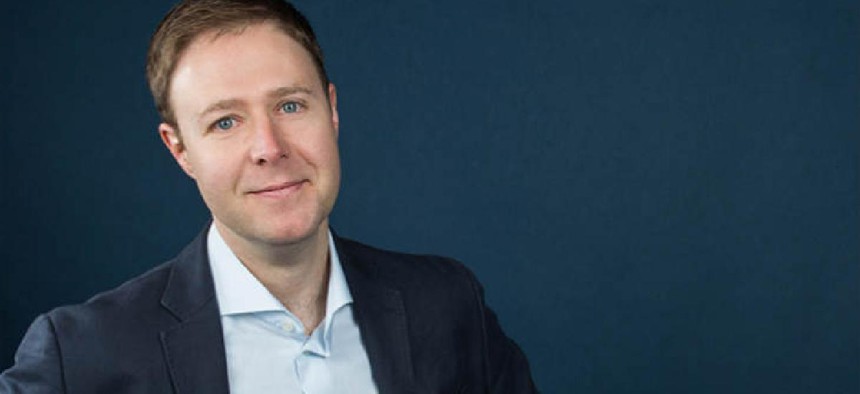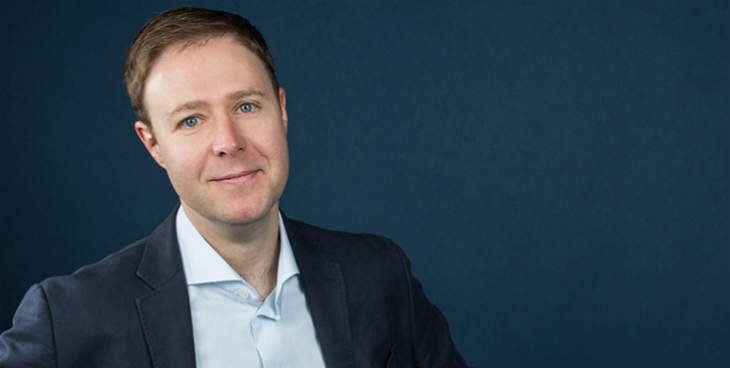Teaching digital government at Harvard today

Steve Kelman sits down with his colleague David Eaves to discuss, among other things, the differences between "digital" and "IT."

Harvard Kennedy School Lecturer David Eaves
David Eaves, a lecturer in public policy, is the person at the Harvard Kennedy School in charge of our digital government efforts. It's interesting work, and I think both his background and perspectives are worth sharing.
A native of Vancouver, Canada, he got a master's in the late 1990s in international relations at Oxford, where he developed an interest in negotiations. After graduation, he went to work for a Boston company doing negotiations consulting, because Cambridge, mostly through the Law School "getting to yes" people, was a center for people who wanted to work on this.
After a few years there, an old friend working at Mozilla hired him to help that organization with its internal organizational dynamics. This allowed him to cultivate his interest in tech. ("I was always an IT nerd, as nerdy as you can get without writing code.") Eaves became fascinated by Mozilla's status as an open-source, more or less non-profit organization. He started writing about "what government could learn from the open source community," and started hanging out in the civic tech world.
In 2007 he returned to Vancouver to work for the governing party there, again on negotiations. Vancouver, it turned out, had developed the second open data portal in the world, and he started writing about that. Through that work he met Jennifer Pahlka, founder of Code for America, and was recruited to give tech training to new Presidential Innovation fellows and Code for America fellows.
Around three years ago, the Kennedy School began looking for a faculty member to take charge of teaching and developing the school's presence in digital government. They were attracted to his teaching experience, to the fact that he had co-founded a company called Recollect that sells to local government, and to his status as someone who was "engaged in government but not too enthusiastic – willing to be critical of tech transformation." Eaves has now been at the Kennedy School for just over two years.
He has been teaching two courses to our younger degree program students, one called Digital Government: Technology, Policy, and Public Service Innovation, which this last fall had about 100 enrollees (a big course for us), and also a shorter course about Healthcare.gov (that I co-teach with him) called Preventing Digital Disaster: Why Digital Implementations So Often Go Badly.
Eaves also has been running a recently established Kennedy School effort called Digital HKS, which seeks to raise the visibility of digital government work at the school. Digital HKS works to get more students with digital interests to the school, to attract students who might otherwise not been involved with digital, to increase the number of courses and to boost the interest in digital government more broadly among our existing faculty.
Earlier this month the Kennedy School launched a one-week executive education program called Digital Transformation in Government. Over 60 people were in attendance; the approximate mix was 20 percent techies and 80 percent general managers. Over half were from outside the U.S. -- and just three were from the U.S. federal government.
Eaves said there was more optimism from participants from developing countries than from the U.S., because they were dealing more with new capabilities than with legacy systems and IT failures. "The attitude was 'we gotta get this right' vs. 'how do I deal with this big old problem," he said.
When asked what he saw as the most important messages to get across in the program, Eaves offered three.
The first, he said, was the difference between "IT" and "digital government." (As somebody who definitely grew up in the IT age, I was fascinated to hear what he had to say.)
"In government, your IT guy's job to make sure your servers and email were working, and to help procure application software," Eaves said. By contrast, "digital government involves real time metrics, data analytics, and systems that are user-centric."
"When some government official says 'I want to do data analytics,'" Eaves explained, "they think in the traditional IT way of data on servers, and then they go to an IT guy to do data analytics, but that person doesn't have those skills, and the government often isn't structured to deliver data analytics. We need new skills and competencies, and they are starting to be demanded by senior people."
It is not "that IT is bad and digital is good," he stressed. "Both are important. But if don't have organizations with all those skills, that's a problem."
The second theme was agile development. "The message is that planning is good, but not everything," he said. "Learning is more important. In the tech space, there are almost always a lot of unknown unknowns, and that favors iteration over trying to figure out everything in advance."
(I asked him if he heard any pushback against agile in class. No, he responded, but that might be because skeptics didn't sign up for the program.)
The third theme was enhancing communication and understanding between techies and non-techies. "We need conversations between general managers and tech people," Eaves said. "The tech-leader partnership matters a lot. Both have responsibilities. We need techs who can engage non-techs and explain key tech ideas. Non-techs need to know what questions to ask, so techs don't lead them down a garden path. My goal is to give the non-techs a basic fluency and get them savvy enough to call BS."


